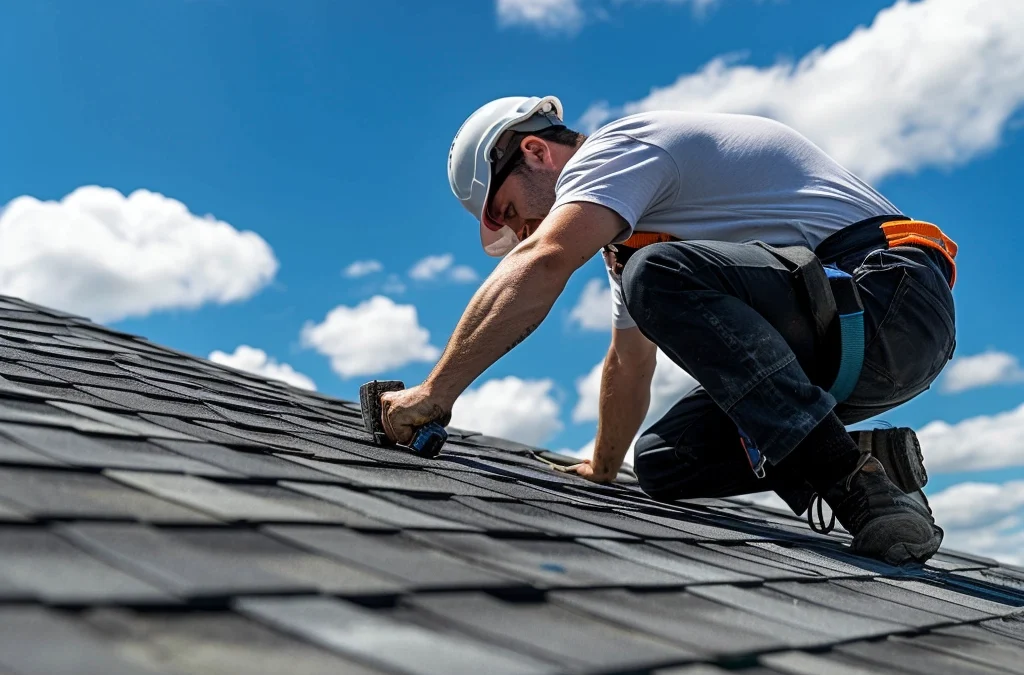Tax Implications of Fresh Roof Treatments in NC: A Comprehensive Guide

The taxation of roof treatments in North Carolina operates under a complex framework of sales and use tax regulations that govern real property contractors. As of 2024, the state’s approach to taxing these services reflects a nuanced understanding of different types of roof work. While general improvements to real property often fall outside the scope of sales tax, the specific nature of fresh roof treatments requires careful consideration to determine their tax status.
North Carolina law makes a crucial distinction between capital improvements and repair, maintenance, and installation (RMI) services. Capital improvements typically result in a significant enhancement to the property’s value and are generally non-taxable to the end customer. However, RMI services, which include many types of roof treatments, usually attract the state sales tax rate of 4.75% plus applicable local taxes.
Fresh Roof Treatments and Their Tax Classification
Fresh roof treatments encompass a wide range of services that protect and enhance roof structures. Understanding how these treatments are classified is essential for determining their tax status. Protective coatings and waterproofing applications, while preventative, may be classified differently from complete roof restoration projects in Greenville NC. The distinction often lies in the permanence and extent of the improvement to the property.
When a contractor applies a fresh roof treatment as part of ongoing maintenance, the service typically falls under the RMI category and is therefore taxable. However, if the treatment is part of a larger renovation project that qualifies as a capital improvement, the tax implications change significantly. The key factor often lies in whether the work extends the useful life of the property or merely maintains its current condition.
Contractor Responsibilities and Tax Obligations
Contractors operating in North Carolina bear significant responsibility for proper tax handling in roof treatment projects. They must first pay sales tax on all materials purchased for the job, including coatings, sealants, and any other supplies needed for the treatment. This tax becomes part of the contractor’s cost of doing business and should be factored into the total project price rather than passed directly to the customer as a separate line item.
Documentation plays a crucial role in tax compliance. Contractors must maintain detailed records of material purchases, tax payments, and project specifications. These records serve multiple purposes: they demonstrate tax compliance, support project classifications, and provide necessary documentation for any exempt transactions. The North Carolina Department of Revenue may request these records during audits, making thorough record-keeping essential for business operations.
Special Considerations for Different Property Types
The tax treatment of roof services can vary significantly between residential and commercial properties. Residential homeowners generally don’t pay direct sales tax on capital improvements, but they may be liable for tax on RMI services. The classification becomes particularly important in cases of emergency repairs or when dealing with historic properties that may qualify for special tax considerations.
Commercial properties face additional complexities in tax treatment. Some businesses may qualify for exemptions based on their operations or status while manufacturing facilities might have specific provisions affecting how their roof treatments are taxed. Property owners should work closely with their contractors to understand these implications before beginning any roof treatment project.
Energy Efficiency and Environmental Considerations
North Carolina’s tax code recognizes the growing importance of energy-efficient building solutions. Roof treatments that significantly improve a building’s energy efficiency might qualify for special tax considerations or incentives. Solar-reflective coatings and other energy-saving treatments may be classified differently from standard maintenance work, potentially affecting their tax status.
Historic properties present another special case in the tax treatment of roof services. Buildings listed on state or national historic registers often have specific requirements for maintenance and renovation work. These requirements can affect how roof treatments are classified for tax purposes and may provide access to additional tax benefits or exemptions.
Understanding Local Tax Variations
While North Carolina’s state sales tax rate remains constant at 4.75%, local tax rates can vary significantly between counties. Most counties add a 2% local tax, but some metropolitan areas impose higher rates. For example, Mecklenburg and Wake Counties charge 2.5%, while Durham and Orange Counties levy 2.75%. These variations can significantly impact the total cost of taxable roof treatments and must be carefully considered in project planning.
The combined state and local tax rate, averaging 6.98% across North Carolina, affects how contractors price their services and how property owners budget for roof treatments. Understanding these local variations is crucial for accurate project estimation and compliance with tax regulations.
Recent Developments and Future Outlook
The tax landscape for construction services, including roof treatments, continues to evolve in North Carolina. Recent legislative updates have refined the definitions of RMI services and capital improvements, affecting how different types of roof work are classified for tax purposes. Contractors and property owners must stay informed about these changes to ensure continued compliance.
Enforcement of tax regulations has also seen increased attention in recent years. The state has implemented stricter documentation requirements and enhanced audit procedures, emphasizing the importance of proper project classification and record-keeping. This trend suggests that thorough documentation and careful attention to tax compliance will become even more crucial in the future.
Practical Implications for Property Owners
Property owners considering fresh roof treatments should understand that the tax implications extend beyond the initial project cost. Proper documentation of improvement projects can affect property valuations and potential future tax assessments. Additionally, understanding the distinction between taxable and non-taxable services can help in making informed decisions about the timing and scope of roof work.
Working with qualified contractors who understand North Carolina’s tax requirements is essential. Property owners should request detailed proposals that clearly explain the tax treatment of proposed work and maintain records of all roof treatments for future reference. This documentation can prove valuable for tax purposes and when demonstrating proper maintenance of the property.
Conclusion
The taxation of fresh roof treatments in North Carolina reflects the complex interplay between construction services, property improvements, and tax law. Success in navigating these requirements demands careful attention to project classification, thorough documentation, and an understanding of both state and local tax regulations. Property owners and contractors who maintain clear records and stay informed about tax requirements will be best positioned to handle these projects efficiently and compliantly.
For specific situations, consulting with qualified tax professionals or the North Carolina Department of Revenue remains advisable, as individual circumstances may warrant special consideration. The investment in proper tax planning and compliance can prevent costly complications and ensure the successful completion of roof treatment projects.






